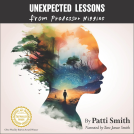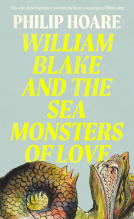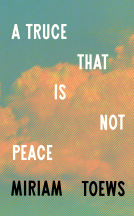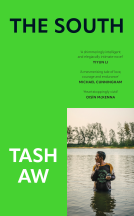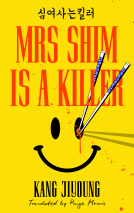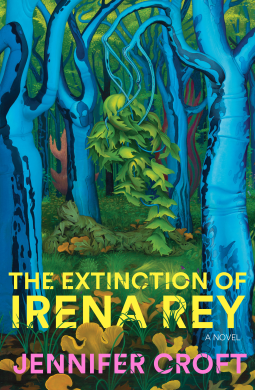
The Extinction of Irena Rey
by Jennifer Croft
This title was previously available on NetGalley and is now archived.
Send NetGalley books directly to your Kindle or Kindle app
1
To read on a Kindle or Kindle app, please add kindle@netgalley.com as an approved email address to receive files in your Amazon account. Click here for step-by-step instructions.
2
Also find your Kindle email address within your Amazon account, and enter it here.
Pub Date 14 Mar 2024 | Archive Date 1 Mar 2024
Talking about this book? Use #TheExtinctionofIrenaRey #NetGalley. More hashtag tips!
Description
From the International Booker Prize–winning translator, a propulsive, beguiling novel about eight translators and their search for a world-renowned author who goes missing in a Polish forest.
Eight translators arrive at a house in a primeval Polish forest on the border of Belarus. It belongs to the world-renowned author Irena Rey, and they are there to translate her magnum opus, Gray Eminence. But within days of their arrival, Irena disappears without a trace.
The translators, who hail from eight different countries but share the same reverence for their beloved author, begin to investigate where she may have gone while proceeding with work on her masterpiece. They explore this ancient wooded refuge with its intoxicating slime moulds and lichens and study her exotic belongings and layered texts for clues. But doing so reveals secrets — and deceptions — of Irena Rey's that they are utterly unprepared for. Forced to face their differences as they grow increasingly paranoid in this fever dream of isolation and obsession, soon the translators are tangled up in a web of rivalries and desire, threatening not only their work but the fate of their beloved author herself.
This hilarious, thought-provoking debut by award-winning translator and author Jennifer Croft is a brilliant examination of art, celebrity, the natural world, and the power of language. It is an unforgettable, unputdownable adventure with a small but global cast of characters shaken by the shocks of love, destruction, and creation in one of Europe’s last great wildernesses.
Advance Praise
Praise for Homesick:
‘Haunting and visually poetic, Croft’s book explores the interplay between words and images and the complexity of sisterly bonds with intelligence, grace, and sensitivity. Poignant, creative, and unique.’ – Kirkus Reviews
‘In this marvel of a book that magically expresses the untranslatable, Croft follows Amy’s tortured path as she asks how far, and in what way, we are responsible for how loved ones’ lives play out. In her struggle to answer such questions, Amy learns the extent and limitations of love’s power.’ – Foreword Reviews
‘Through photographs and prose, Croft’s genre-blending memoir investigates how chronic illness sickens an entire family … A heartbreaking, vanguard, and mixed-media coming-of-age memoir.’ – Booklist
Available Editions
| EDITION | Hardcover |
| ISBN | 9781915590121 |
| PRICE | £16.99 (GBP) |
Links
Available on NetGalley
Average rating from 17 members
Featured Reviews
Jennifer Croft is one of the best translators writing today and The Extinction of Irena Rey re-affirms her out as one of the most promising prose writers of her generation.
 Paul F, Reviewer
Paul F, Reviewer
“We treated her every word as sacred, even though our whole task was to replace her every word.”
The Extinction of Irena Rey is the 2nd novel (or the 1st according to her US publisher, who treated Homesick as a memoir) by Jennifer Croft, who, inter alia, is one of the translators of 2018 (awarded in 2019) Nobel Lauraete Olga Tokarczuk.
I say that not to detract from Croft's other achievements, but rather for its relevance for this novel. Croft has spoken of both the strong community spirit between Tokarczuk's translators, and also the reverence they all have for the novelist, who invited many of them to the Nobel ceremony.
Croft was pictured there with Lennart Ilke and Jan Henrik Swahn, Tatiana Izotova, Antonia Lloyd-Jones, Margot Carlier, Petr Vidlak, Greet Pauwelijn, Maryna Szoda and Olga Baginska-Shinzato. Or as the eponymous fellow Polish Nobel Prize contender Irena Rey would call them: Swedish and Swedish, Russian, English, French, Czech, Dutch, Belarusian and Portuguese.
The Books of Jacob, the novel that the Nobel Committee cited as 'her magnum opus so far', was also the book that triggered Croft's campaign for publishers to put the translator's name on the cover of the book and her own decision to refuse to translate a novel without that promise (one the UK publisher of her translations of Tokarczuk's novels has so far not been prepared to accommodate).
The story in The Extinction of Irena Rey is set in seven weeks in Autumn 2017. On September 20, eight translators arrive at the home of the novelist Irena Rey in the Polish side of the Białowieża Forest. They are there for a residential group translation session of her new, and unpublished, novel Szara eminencja ('Grey Eminence' in English).
“We worshipped Our Author, and when she sent us an email telling us her masterpiece was done, we canceled our plans and packed our bags and flew from our cities to Warsaw, where, bedraggled and ecstatic, we took the train into town and boarded the bus for Białowieża. It was our seventh pilgrimage to the village at the edge of the primeval forest where she lived. She had always lived there, five miles from the Belarusian border. She loved that forest as much as we loved her books, which, without a fraction of a second’s hesitation, we would have laid down our lives to defend. We treated her every word as sacred, even though our whole task was to replace her every word.”
They represent the languages English, Spanish, German, French, Ukranian, Serbian, Slovenian and Swedish. A previous member of the group, Czech has died mysteriously since the last Irena Rey novel. As per above the author simply refers to them by their language, and that's the way they initially refer to each other. 'Swedish' is the newest member of the party, added to the roster to ensure the Committee in Stockholm has full access to the work:
“Swedish was new, handsome as a red deer, and we knew at first sight that he would be her favorite. Not only because of the prestige of his language, a conduit to her inevitable Nobel Prize, but also because of his saunter, his stance, that gratifying invitation in his hot blue eyes.”
The account we're reading is (in a meta-fictional sense) an autofictional novelisation of the events of that period, written many years later after Irena Rey finally wins the 'inevitable' Nobel in 2026.
Or rather that's the original of the account we're reading, which was written, oddly in Polish rather than her native Argentinian-Spanish, by 'Spanish', who we later learn is called Emilia Ambrogi, Emi for short, and who titled her novel Amadou (which in the real-world was also Croft's working title for the novel).
What we're actually reading, complete with a translator's foreword (or rather a Translator's Warning) and footnotes, is the English translation of that book, by 'English', an American called Alexis, written in 2027. And Alexis and Emi are no fans of each other, meaning that Alexis's footnotes are, while sometimes helpful, more commonly sarcastic rejoinders or alternative accounts of what happened.
Croft is also having some further fun with the Emi / Alexis rivalry as they seem to both have parts of her - Croft is Tokarczuk's American English translator, but learned Spanish in Buenos Aires, and also translates from Argentine Spanish (and only that dialect of Spanish) into English, alongside from Polish and Ukranian.
Although both Olga Tokarczuk (named as one of the contenders alongside Rey to have written the 'great Polish novel' and as a fellow Nobel Prize winner) and Croft (unnamed but referred to as author of 'a strange book called Snakes and Ladders written for some reason in Argentine Spanish by the U.S. translator of Olga Tokarczuk' - Serpientes y escaleras was the original book on which Homesick was based) appear as real, if peripheral, figures in the novel.
Before we even get into Alexis's translation of Emi's account Alexis warns us:
“This has been the hardest book I’ve ever had to translate. Since trust is crucial to every stage of the translation process, I feel I owe it to the English-language reader to explain.
First: One of Extinction’s main characters is based on me. Should you choose to keep reading, how uncomfortable this was for me to translate will be clear as crystal. Then again, as someone who dedicates a lot of thought to word choice, I realize “uncomfortable” might not be quite the right word. It was uncomfortable to read a version of myself I couldn’t recognize. But translation isn’t reading. Translation is being forced to write a book again. The Extinction of Irena Rey required me to recreate myself as the worst person in the narrator’s world, the monster who seems to want to ruin everything.”
She also explains, rather ominously: “Part of the plot is inspired by true events, and although I can’t say which part, I can say that my partner is a lawyer—an excellent lawyer, with extensive experience in criminal defense—and that we live in Mongolia, which has no extradition treaty with Poland, or, for that matter, the United States.”
The story that follows is a rather convoluted one where Irena Rey first takes her translators into the primeval forest and makes some rather odd comments then promptly disappears. Her translators then get increasingly somewhat hysterical looking for her, as well as busy having sex and trying to kill each other, with meanwhile the ancient forest being chopped down around them and a mysterious archer firing arrows at people.
The novel also contains various pictures taken by the characters or posted, mysteriously, on the author's Instagram account (but by who?). Jennifer Croft's own website contains Emilia Ambrogi's secret Instagram account</a> with photographs such as this of the ominous signs the neighbours put up on their fences shortly after the translators arrive (the messages read "If he doesn't bite you, I'll shoot you)
“We noticed that Our Author’s neighbors had put up signs across their fence. All the signs were warnings against trespassing, images of German shepherds or revolvers with different Polish versions of keep out! The words were written in white or black letters on navy or bright yellow backgrounds, some of them emphasized in red. As translators, we were aware of already interloping, and as foreigners in a small but prideful nation, we took these warnings to heart.”
And as the first Thursday in October approaches, the excitement among the translators, and the local press, rises as they wait for the inevitable decision from Stockholm, falling prey to a hoax that has elements both of the prank successfully played on John Banville in 2019 (the year Tokarczuk and Handke won after he'd been expecting to hear his name) and of the Filippo Bernardini fraud.
This is a fun but also an odd book to read - Emi seems more concerned about trying to seduce Freddie ('Swedish') and her rivalry with Alexis as she is with the whereabouts of Our Author - and her narration can be rather superficial. As Alexis warns us:
“Maybe translation does blur the boundaries of selfhood, as this novel suggests, but if so, then it also blurs the boundaries of otherness, which this story, with its inexplicable fixation on one (admittedly attractive) man, seems completely unequipped to comprehend.”
And the story she weaves is a rather preposterous one - lots of hysterical rushing around in the forest at times for no obvious reason. At one point one character asks what exactly they are doing and why they don't just all go home and gets the response “surely it was the best thing we could do for the novel” - by which the interlocutor means Grey Eminence, but could also mean for the sake of the plot of the book we're reading.
And while of course in the novel's meta-fictional world Emi's account is supposed to be 'unequipped to comprehend' subtlety, it does constitute much of the work we're reading.
On the other hand, the portrayal of the Białowieża Forest, its rich history and its rich mycelium-based ecosystem, is impressive - erudite and informative, but also poetic:
“To my left, I saw smoke rising, and I strayed a little from the path. Beams of light that were so bright they seemed opaque, almost solid, embraceable, had touched down upon a mossy stump. The rest of the tree lay in the grass, the exposed wood rough as though after an explosion—just as Petra had seen in her dream. I squatted beside it, searching for the fire. But there was no fire, and the smoke must have just been steam, abundant and unfurling, the metamorphosing dew the moss had gathered overnight. I watched it a while: It was beautiful, but it was also disturbing. I decided to take a picture, not to keep as a souvenir, but to study later, after I was fully awake.”
And Croft (and Alexis) uses the story to make many points about translation, as she explained in the NY Times:
“The central metaphor in “The Extinction” is amadou, a once widespread product of the fungus Fomes fomentarius, which starts its life as a parasite but becomes, after killing its host tree, a decomposer. As such, it enriches the soil and ensures the ongoing vitality of the forest.
Translators overwrite originals, making texts in other languages visible and invisible at once. Without translators, literary traditions and even languages might rot in isolation. With translators, the literary ecosystem keeps up the diversity it needs in order to flourish. Fomes fomentarius embodies the clash between alarming and awe-inspiring that I think makes translation unique among literary forms.”
 Chris L, Reviewer
Chris L, Reviewer
Some novels are exhilarating and joyful reading moments. Jennifer Croft's "The Extinction of Irena Rey" is one of those novels. After her beautiful and elegiac hybrid work of memoir and fiction, "Homesick," Croft turns to the story of a group of translators who deal with the disappearance of their Polish author, Irena Rey. Once Rey disappears, the translators become unmoored, and they search for any meaning to their relationship to Rey and her written work. They also question what it means to translate, and how translation and literature connect to the natural world.
Croft's novel is told through Emi's viewpoint while her rival, Alexis translates the novel into the English language. Throughout the novel, Alexis will gives us translator notes about decisions she made about Emi's manuscript. While Alexis and Emi can be seen as doppelgängers of each other and of Croft, we also have the other translators, we learn why they have chosen to work for Rey. If it were up to me, I would like to see a prequel or sequel to any of these characters as Croft draws them so expertly.
I found this book incredibly witty especially as Croft gives us moments of amusing metafiction. At one point, Emi writes, "A strange book called Snakes and Ladders written for reason in Argentine Spanish by the U.S. translator of Olga Tokarczuk." Snakes and Ladders was the name of "Homesick" before it was released as a memoir in the U.S. and a novella in the U.K. We also have Emi's text and then Alexis's translator notes disputing Emi's version of events. Alexis's translator retorts slowed down my reading as I was constantly going back to them.
I don't want to spoil what happens in the novel, but Croft lands the plane as the saying goes. I was worried that the ending would not match the strength of the rest of the novel, but Croft ends the novel in a way that honours the story and her readers. I did not want the novel to end; I wanted it to be one of those chunkster books that have become so prevalent these days. There is something so comforting about being in the hands of an assured and gifted writer. This is the second year in a row (Homesick came out last year) that I have read a first-rate book from Jennifer Croft.
 Reviewer 876149
Reviewer 876149
Jennifer Croft’s droll, brainteaser of a novel slowly shifts into the realms of the absurd. Like characters from Agatha Christie, eight translators are summoned to an isolated house on the edge of an ancient, Polish forest. Once there, their host, world-famous author Irena Rey, inexplicably vanishes, leaving her eight translators to work out what’s happened – and if it might happen to them too. The book we’re presented with is an account of their experiences and attempts to find Rey. It’s written by one of the eight - at first known only by her translation language Spanish, later as Emi. However, there’s a complication, the version of Emi’s autofictional piece on offer here is actually a translation from Polish to English. A translation carried out by English aka Alexis, another of the eight, and a character in Emi’s book. Alexis’s introduction makes it clear she considers Emi’s version of events highly suspect, casting doubt on her reliability as a narrator. But Alexis’s framing is also somewhat self-serving - since she’s obviously unhappy about her portrayal here - so could it actually be Alexis who’s unreliable? It’s a conundrum we’re left to ponder.
Emi recounts the eight’s arrival at Rey’s house, she’s distraught that the once-luminous Irena now seems close to abject, apparently abandoned by her husband, and oddly tight-lipped about her new book Grey Eminence previously billed as her magnum opus. There’s a pervasive sense of foreboding, intensified by an ill-fated, expedition to nearby Białowieża Forest, a brooding, primeval place with a sinister history. The house too has a gothic feel despite its Japanese, organic design, filled with strange artefacts, it’s a veritable cabinet of curiosities. In Alexis’s translation, Emi’s style seems unintentionally amusing, mannered and bordering on archaic at times. But is this an accurate reflection of Emi’s writing or a parody that furthers Alexis’s agenda? Or could it be that Alexis just isn’t a very competent translator? Alexis muddies the waters even further by interweaving Emi’s text with detailed footnotes that veer between clarification, exasperation and outright intervention. It’s a move worthy of Borges, whose influence is detectable throughout Jennifer Croft’s novel.
Borges alongside half-buried allusions to writers like Poe and Henry James, the interplay between Emi and Alexis, Emi’s excessive reverence for Rey as author of near-sacred work versus Alexis’s more pragmatic stance, all point to Croft’s underlying concerns. Croft’s intent on exploring and contesting popular notions of authorship and meaning, relations between author and translator. Croft is known for her award-winning translations, and her novel bears distinct traces of the Polish literature she’s most famous for - particularly Olga Tokarczuk’s fiction, there’s more than a hint of Gombrowicz here too. Croft challenges traditional binaries, divides between author and translator and also, through Białowieża Forest, nature and culture. Białowieża is a unique place that Croft’s visited more than once, it sustains a rich diversity of flora, fauna and wildlife, some no longer exist anywhere but there. Croft deliberately sets her story in 2017, a time when the Forest came under threat from extensive logging projects as a result of changes in government policy. Croft uses the Forest and Rey’s character to introduce wider questions around ecology, climate change and art in a time of extinction. Rey’s new book revolves around many of these issues including whether or not art is an essentially destructive force. They’re intriguing questions although not ones that Croft always fully, or entirely convincingly, addresses.
Croft unites her interest in ecology and authorship by drawing on ideas circulating in literary, queer and feminist theory. She inserts a series of puzzling references and reflections on the fungi and lichen found throughout the forest - often regarded as discrete organisms, now understood as part of a collective, an inter-sustaining network of living things. Croft has dubbed translation a kind of ‘superlichen’ a process of interconnection and collaboration, embedded in a wider literary and cultural ecosystem. An understanding of translation which deeply troubles established notions of the author as celebrity or individual with a unique, authorial voice – an idea of authorship modelled by Emi in Croft’s narrative through Emi’s hyperbolic regard for Rey and her work. Croft’s novel of ideas is often entertaining and thought-provoking, but it can also be essayistic, dense and overpacked: Croft can't resist including commentaries on topics ranging from publishing culture to rising racism and xenophobia in Europe. I had mixed reactions to this one, it’s well-crafted and I admired its ambition. But it also felt a bit stretched out, overly long, and quite laboured at times – there are a number of points where the plot is too transparently operating as a vehicle for Croft’s ideas.
 Elisabeth G, Bookseller
Elisabeth G, Bookseller
I'm not quite sure what I read just now, but it was fun and weird and absolutely entertaining!
It's one of those book, where I can't explain exactly why I did like it. The story is at times confusing, often funny, the characters are very unique and all in all I found "The Extinction of Irena Rey" highly entertaining. Even though, maybe I did not completely get it :D
 Jess D, Reviewer
Jess D, Reviewer
What a strange and absurd book (compliment).
We meet a group of translators to an isolated house in Poland on the edge of the woods. They are there to translate the works of famous and enigmatic author Irena Rey, as they have done a few times before. When Rey inexplicably vanishes, the translators try to work out what’s happened and whether they should continue with their work.
The Extinction of Irena Rey is very meta - its a book within a book, translated by one of the translators in the story (who comments on the story within it). A lot of fun in the group dynamics (equal parts horny and petty). There are a lot of threads and lore within the book which could be hard to keep track of at times, but overall I found this an enjoyable read.
Thanks to NetGalley and the publishers for the eARC.
Readers who liked this book also liked:
Patti Smith
Humor & Satire, Nonfiction (Adult), Parenting, Families, Relationships
Philip Hoare
Arts & Photography, Biographies & Memoirs, Nonfiction (Adult)
Sarah Harman
General Fiction (Adult), Mystery & Thrillers, Women's Fiction
Esther Park
General Fiction (Adult), Historical Fiction, Sci Fi & Fantasy

